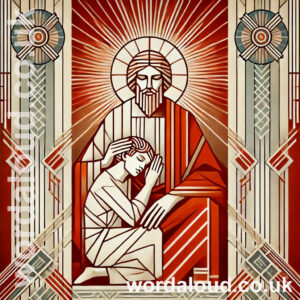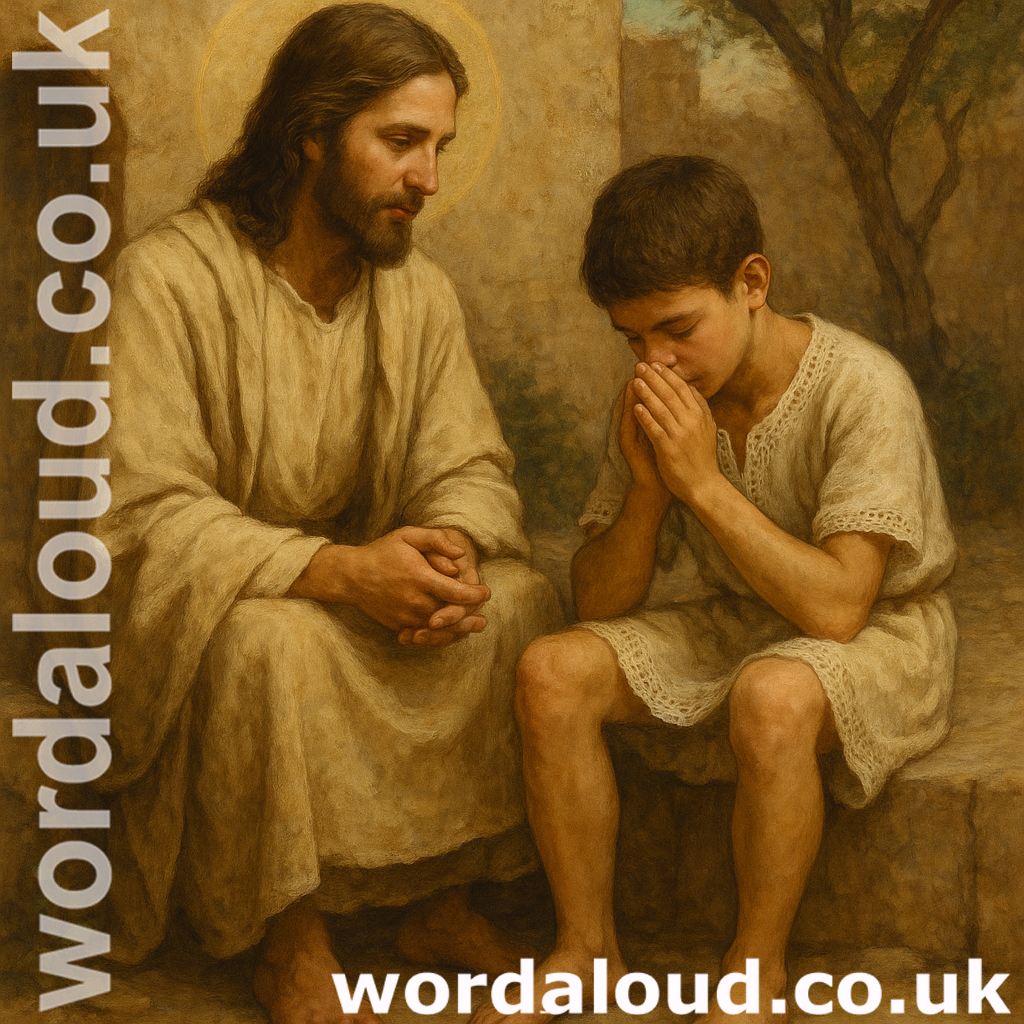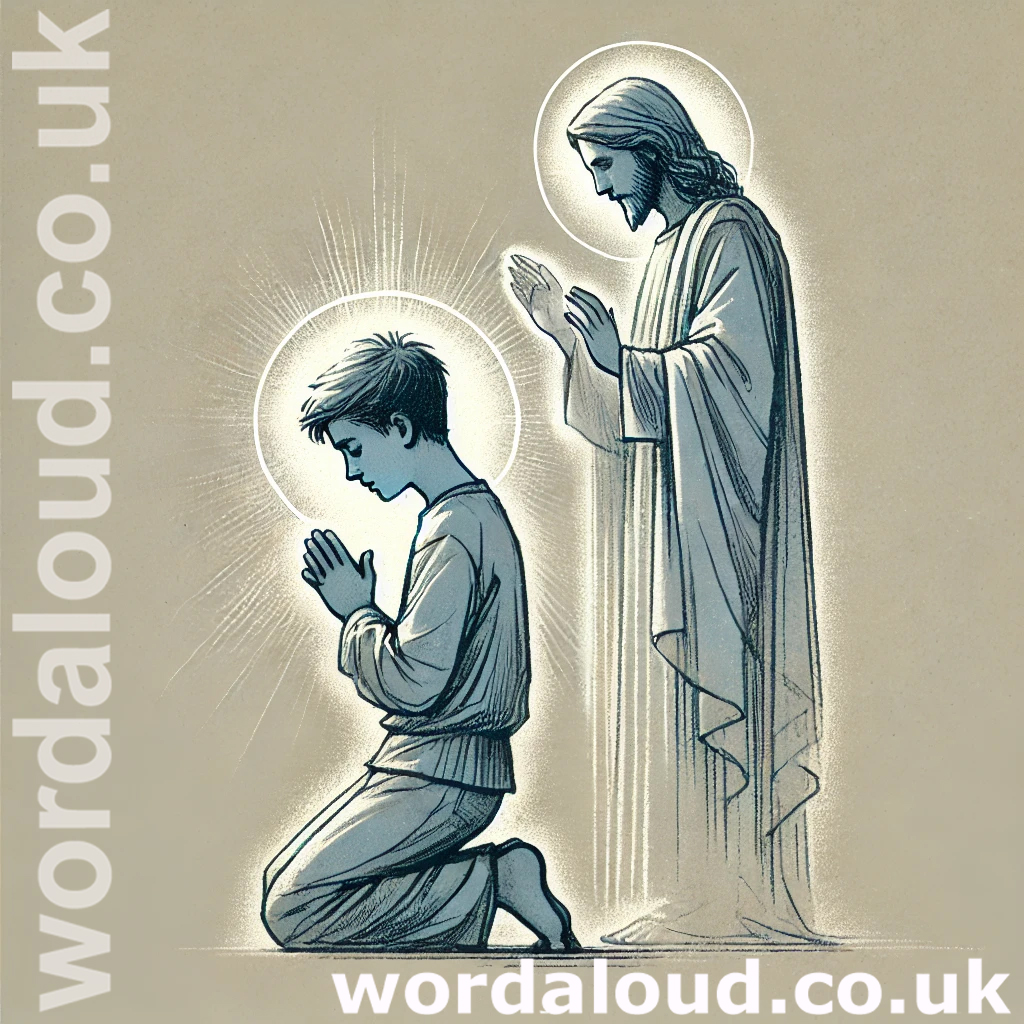Christian Art | George Herbert | Sepulchre | The Church | Church-Musick
George Herbert | The Temple | The Church | Church-Musick
Sweetest of sweets, I thank you: when displeasure
Did through my bodie wound my minde,
You took me thence, and in your house of pleasure
And daintie lodging me assign’d.
Now I in you without a bodie move,
Rising and falling with your wings:
We both together sweetly live and love,
Yet say sometimes, God help poore Kings.
Comfort, I’le die; for if you poste from me,
Sure I shall do so, and much more:
But if I travell in your companie,
You know the way to heavens doore
![]()

George Herbert | The Temple | The Church | Church-Musick
The poem meditates on a relationship with God, this explored through themes of transcendence, vulnerability, and search for spiritual guidance. Herbert begins with an expression of gratitude, addressing this divine presence as ‘sweetest of sweets’. This epithet evokes an almost sensual intimacy, suggesting a deeply personal connection with God, who offers relief and solace. God’s intervention is characterized as rescuing Herbert from bodily and mental distress and transporting him to a ‘house of pleasure’ and ‘dainty lodging’. These phrases conjure images of refuge and spiritual elevation, positioning God as nurturer and healer who offers sanctuary from life’s tribulations.
In the second stanza, the relationship deepens into a shared, almost symbiotic experience. Herbert claims, ‘Now I in you without a body move,’ portraying a complete surrender to and immersion in this divine force. The verse suggests transcendence of physical constraints, emphasizing the liberating and uplifting nature of divine presence. Imagery of ‘rising and falling with your wings’ introduces a dynamic sense of movement, perhaps symbolizing the interplay between human vulnerability and divine power. Yet, even in this sublime union, Herbert remains mindful of earthly struggles, as seen in the sudden invocation, ‘God help poor Kings.’ This phrase juxtaposes the spiritual with the political and mundane, reminding the reader that human frailty persists, even in the company of the divine.
The final stanza shifts to a tone of supplication, underscoring Herbert’s dependence on divine guidance. ‘Comfort, I’ll die; for if you post from me, / Sure I shall do so, and much more’ expresses an acute fear of abandonment. The term ‘post’ suggests abruptness, highlighting the fragility of Herbert’s state without God’s support. The acknowledgment of mortality here is stark, but it is also tempered by hope: Herbert’s trust in divine companionship as the means to reach ‘heaven’s door’. This closing image merges the temporal and eternal, framing the divine as both a guide in life and a gatekeeper to salvation.
Structurally, the poem mirrors stages of a spiritual journey. The first stanza centers on gratitude for deliverance, the second on reflection and union, and the third on dependence and aspiration. This progression reflects Herbert’s evolving understanding of his relationship with the divine, moving from the immediate comfort of rescue to a longing for eternal communion.
Tension between human weakness and God’s strength is a central motif. Herbert’s acknowledgment of his own insufficiency contrasts with boundless potential of divine support. Yet this dependency is not passive; it invites active participation in the form of trust and faith. Such interplay of tender imagery (‘house of pleasure’, ‘wings’) and sobering acknowledgment of human frailty (‘Comfort, I’ll die’) lends the poem an emotional as theological depth.
The poem is prayer and meditation—a moment of profound self-awareness couched in humble recognition of God as the source of all sustenance, motion, and ultimate purpose. The poem’s brevity amplifies its intensity, leaving the reader with a distilled yet expansive reflection on the human condition and the divine relationship.








